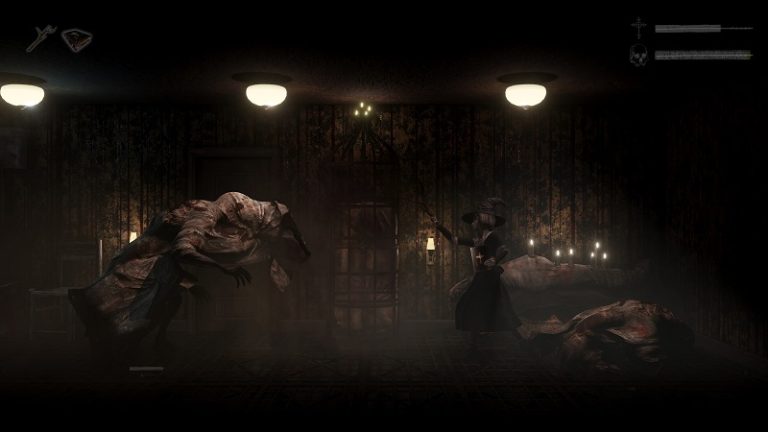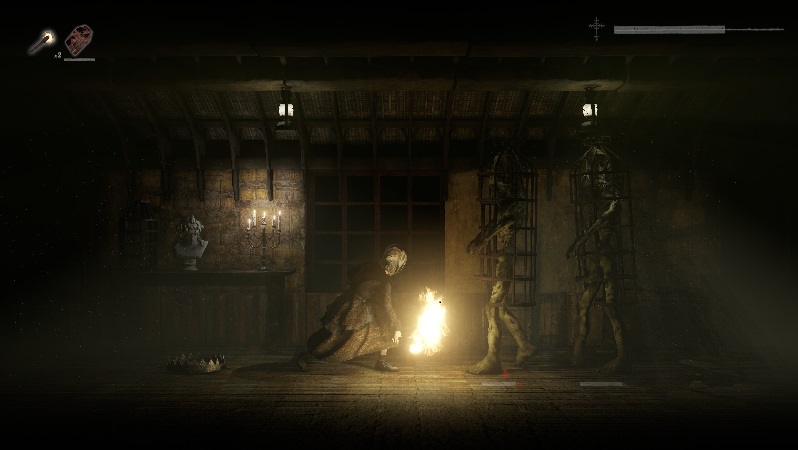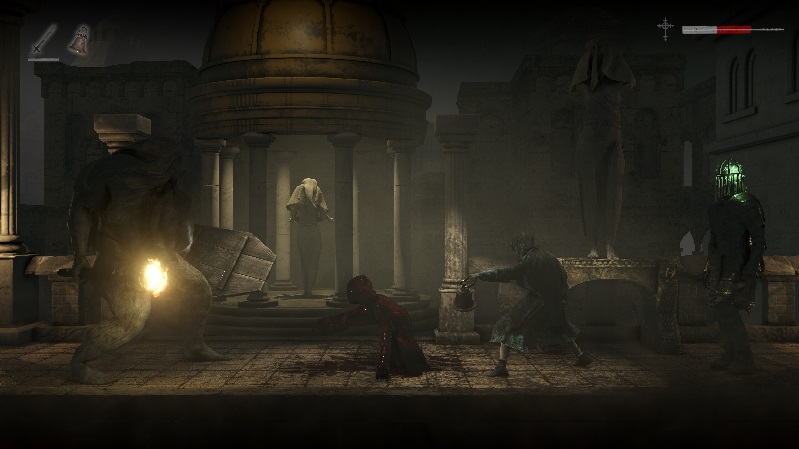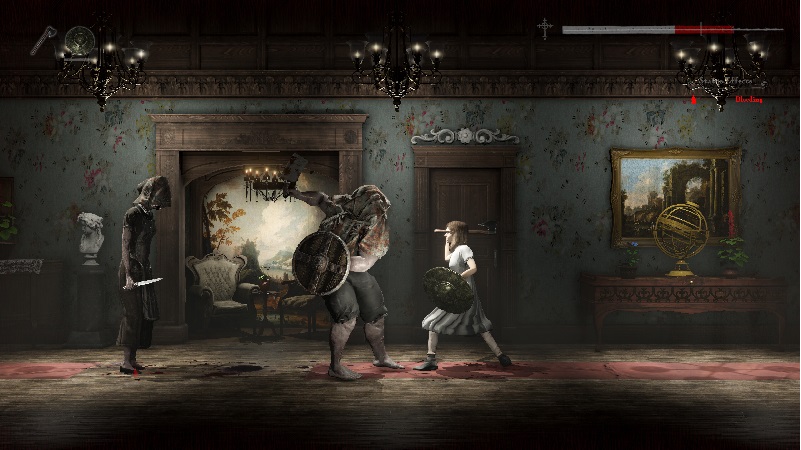Withering Rooms Review (PS5) – For better or for worse, true growth for any genre takes place when someone takes a chance on a different concept. Arguably, the horror genre has benefitted the most from the indie scene for that very reason: Bigger-budget titles just do not take the same kind of chances to try new things. Moonless Formless leaned into several different inspirations and concepts to create Withering Rooms. Fortunately, the payoff for doing so results in something intriguing and genre-expanding, even if it’s not perfect.
Withering Rooms Review (PS5) – Contributing Compelling Ideas Into The Horror Genre
Nightmares on their own are bad enough. It’s a different experience entirely when the nightmare you experience belongs to someone else. This is the situation that Nightingale finds herself in, caught in a loop of revitalization, learning, exploration, and death. Along the way, Nightingale encounters witches that help her learn techniques and spells. Magic may not work in the real world, but it certainly does in this nightmare.
The true strength of Withering Rooms comes with how it handles its rogue-like elements. Instead of completely revamping the structure of Mostyn House, an asylum by nature, the game instead switches rooms around and makes adjustments to them. In this, the general structure of the game remains the same. As someone who doesn’t generally resonate with rogue-likes, this universality to the gameplay loop makes the experience much more enjoyable.
This structure benefits from the fact that the asylum revolves around a long hallway that never changes, offering the same amount of doors for each new run. What also helps is that many of the key locations needed for story progression and character leveling stay roughly the same all the time as well. They may not be in the same location, but those specific locations look the same each time.
When it comes to the horror genre, this steady element of unknown lends to the game’s sustainability and replayability. Even after multiple playthroughs, you may know what will come your way, but you never know when that happens. Granted, after a while you see everything the game has to offer, but that’s like any game. This concept makes for an inspiring idea for future horror games to consider. Other horror titles have done something similar, like the different scenarios when playing the New Game + mode in Alan Wake 2. At the same time, this execution keeps everything more spontaneous for much longer, even if the more spontaneous outcomes aren’t quite as impactful as they are in Alan Wake 2.
Like any rogue-like, Nightingale loses the equipment and items she collects when she dies. With that in mind, Withering Rooms throws you a bone on this front, offering you opportunities to “remember” certain things and have them available each time you die. Submitting certain items allots you more remembrance slots. The game only provides so many of these slots. Equally so, a thoughtful setup for your playstyle can see you succeed regularly without much need to collect more items on the map. Personally, I love running around with knights magicked into existence, letting me sit back and control the fight more easily.
Withering Rooms is often compared to Bloodborne simply due to its difficulty. However, its game loop combined with its style of RPG elements hearken more to Metroidvania games. The one blatant inspiration from the Soulsborne games is the leveling screen. Unlike the Soulsborne games, however, Withering Rooms limits what stats you increase into groupings of other similar stats, like strength with agility.
How you learn traits is another direct comparison to Metroidvania games. These come in the form of codices, which grant different boons or ailments both in combat and while exploring. For instance, one grants you immunity frames when dodging while another increases how cursed your character becomes. Since all spells add a level of curse to Nightingale, you need a specific build that benefits from high curse levels if you plan to use a codex that builds up your curse even more. The game rewards you for mixing things up and experimenting with new spells or play styles.
The most cumbersome thing about Withering Rooms is getting used to the intentionally heavy combat. I say intentional simply because every aspect of combat revolves around making things easier and more flexible as you progress. Even after some upgrades, though, you still fall prey to some cheap shots. In particular, a lot of mini-bosses and bosses have large attacks or wide weapon swings. Plenty of times I felt like I was far enough behind an ax-wielder only to get smacked from the momentum of the swing. The more you think about it after the fact, the more it starts to make sense. However, it rarely feels fair at the moment. At least with the Soulsborne games, you know right away if you made the mistake.
Finally, the magic element proves quite powerful in comparison to any other combat style, especially when you consider how easy it is to succeed with magic compared to hand-to-hand combat. This side of the game is very fun, but it ultimately creates an imbalance in combat as a whole, often leaving enemies at your mercy. Yes, you need reagents and build up curse from magic, but there are so many ways to deal with, or even benefit from, curses that melee feels almost obsolete.
Expanding A Genre
All horror fans, go pick up Withering Rooms! This kind of game is for you, mixing many beloved concepts with some cool ideas to keep things from getting too predictable. Combat gets clunky fairly often, but it never breaks the game. Besides, running magic expands what you can do, opening up your potential in spades. It’s far from perfect, but this ambitious indie romp offers up something entirely unique and worth trying.
Review code kindly provided by publisher.



